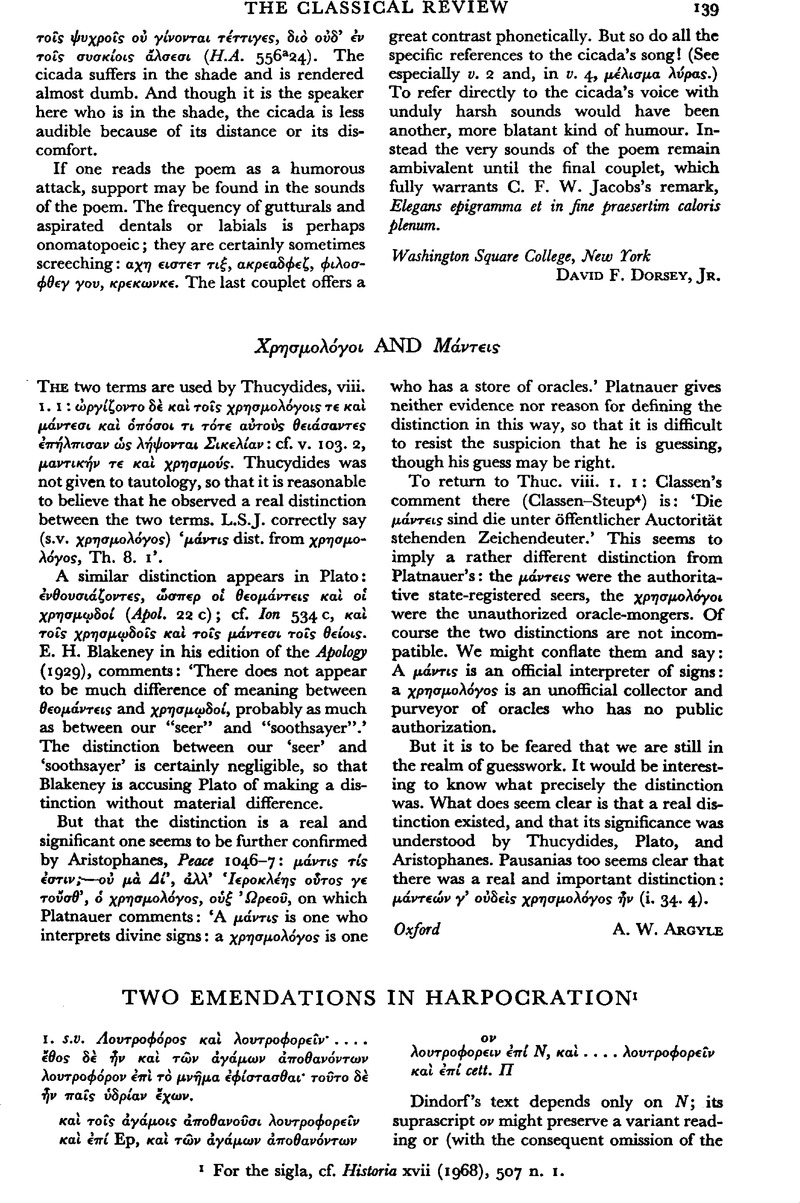No CrossRef data available.
Article contents
Two Emendations in Harpogration1
Published online by Cambridge University Press: 27 February 2009
Abstract

- Type
- Review Article
- Information
- Copyright
- Copyright © The Classical Association 1970
References
1 De Din. 12. Here the speech is entitled Συνηγορ⋯α Ἡγελ⋯χῳ ὑπ⋯ρ ⋯πικλ⋯ρου.
2 There is a parallel, if the text is sound, in Eusebius,P.A. x. 3: Δε⋯ναρχος ⋯ν τῷ αΚατ⋯ Κλεομ⋯δοντος αἰκ⋯ας. Again, Dionysius knows only one speech. Cf. Shoemaker, G., Dinarchus (Columbia diss., 1968), 63–64.Google Scholar
3 Harpocration is frequently indifferent to aspiration: cp. κατ⋯ Ἱμερα⋯ου (s.v. Ἀμμων⋯ς) and καθ’ Ἱμερα⋯ου (s.v. Νομοφὑλακες).
4 For examples of suprascript letters brought down on to the line, cf. C.P. Ixiii (1968), 281.


